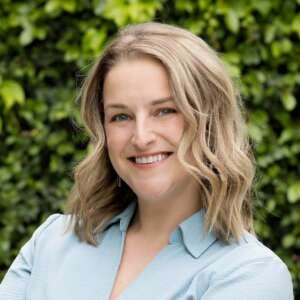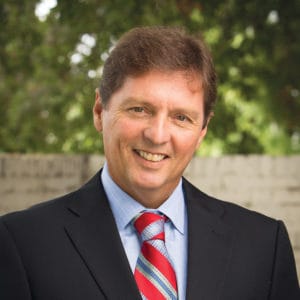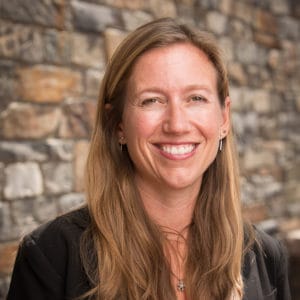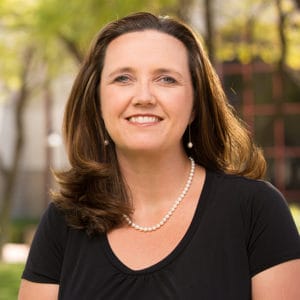Faculty
-

Becky Reichard
Full Professor
Research Interests
Development of those not typically represented in leadership roles (e.g., women, BIPOC, LGBTQ+), Psychological mechanisms underlying the process of leader development (e.g., feedback, goal striving, self-views, implicit theories, leader development readiness), Development of leadership through experiences outside of the work context (e.g., global, sports, volunteering, crisis)
-

Jessica Diaz
Director, Human Resource Management
Assistant ProfessorResearch Interests
Organizational behavior, employee experience, psychological safety, diversity, equity, and inclusion, leader development, statistics and methodology
-

Stephen Gilliland
University Professor
Research Interests
Organizational Justice, Employee Attitudes and Motivation, Leadership
-

Stewart I. Donaldson
Distinguished University Professor
Executive Director, Claremont Evaluation Center
Executive Director, The Evaluators' Institute (TEI)
Research Interests
Positive Organizational Psychology, Health/Well-Being & Positive Functioning Across Cultures, Program Design & Re-Design, Culturally Responsive Theory-Driven Measurement & Evaluation
-

Michelle Bligh
Executive Vice President & Provost
Professor of Organizational BehaviorResearch Interests
Leadership, Organizational Culture, Charismatic Leadership
-

Tiffany Berry
Dean, School of Social Science, Policy & Evaluation
Full Research ProfessorResearch Interests
Educational Program Evaluation, K–12 Educational Curricula, Comprehensive School Reform
-

Michelle Sloper
Associate Professor of Evaluation Practice
Research Interests
Positive youth development, evaluation capacity building, evaluation use, continuous quality improvement, expanded learning programs
Affiliated Faculty
-
Sheilesha Willis
Research Interests
Cultivating Diverse, Equitable, and Inclusive Organizations
Curriculum
The PsyD curriculum integrates statistics, methodology, and evaluation with significant hands-on experience through applied projects with leading organizations. With concentrations available in Industrial and Organizational Psychology and Positive Organizational Psychology plus 22 units of electives, you can customize your education to match your career goals. A mix of online and flex courses accommodates working professionals, allowing you to balance career, family, and study while enjoying our unique campus culture.
Degree Requirements
Coursework
- Concentration Core Courses: 16 units
- Stats and Methods: 16 units
- Evaluation: 6 units
- Concentration Related Electives: 22 units
- Practicum and Capstone: 8 units
- Transdisciplinary Course: 4 units
Practicum
You will complete two practicum courses and aligned projects.
- Year one: Complete an applied project while taking directed practice, a course designed to support project completion and build applied skills.
- Year three: Complete advanced practice, which helps scaffold your capstone project. (see below)
Field Training
Take TDNY 440 (Professional Practice for Inclusive Excellence) to complete your field placement. You are encouraged to use your field placement organization for either your first year project and/or your capstone project.
Capstone
Address a real organizational psychology issue faced by a real client. Upon completion of the project, you will present your work to a panel of practitioners and academic scholars in a capstone defense.
Portfolio
Complete an applied and practitioner-driven portfolio that will equip you with applied and translational skills essential to compete in the workforce. The portfolio will include the following:
- Practice-Based Thesis completed collaboratively during Practicum course to serve as sumary report of your applied project.
- Technical Report: evidence-based practice review on I-O Psychology
- TNDY 440 Professional Practice for Inclusive Excellence + field experience
- (3) items aligned to your career goals. Examples include: present at a practitioner conference, submit a paper in a practitioner outlet, design and deliver a training, executive coaching certification.
Competencies & Learning Outcomes
- Apply Ethical, Legal, and Diversity Standards (SIOP 1, 3): Graduates will adhere to ethical and legal guidelines in the practice of Industrial-Organizational Psychology, demonstrating a commitment to professional integrity and responsible conduct.
- Employ Effective Measurement, Research Methods, & Statistical Procedures (SIOP 5, 6, 9): Graduates will understand and use a range of quantitative and qualitative methods and statistics to understand and measure complex workplace dynamics. Graduates will be proficient in measurement and assessment procedures for a variety of selection and organizational development initiatives.
- Apply Psychological/Organizational Behavior Principles to Organizations (SIOP 2, 7, 8, 10, 11, 17, 20): Graduates will demonstrate the ability to apply organizational theories and principles to address complex workplace challenges, including talent management, organizational development, and performance enhancement.
- Facilitate Training and Organizational Development (SIOP 19, 23, 24): Graduates will be able to train employees and implement and evaluate organizational development initiatives designed to improve organizational effectiveness.
- Facilitate Effective Selection & Job Evaluation Procedures (SIOP 12, 13, 14, 15, 21, 22): Graduates will have a deep understanding of talent acquisition, development, and retention strategies, enabling them to optimize workforce planning and talent management initiatives.
- Employ Professional and Consulting Skills (SIOP 4, 16): Graduates will communicate effectively, perform a range of consulting and project management skills, and collaborate effectively with multidisciplinary teams. Graduates may work as consultants to organizations seeking expertise in areas such as performance management, employee well-being, and leadership development.
Application Guidelines
| Item | Description |
|---|---|
| Application Fee | $80 |
| Official Transcripts | Yes |
| Letters of Recommendation | 2 |
| Statement of Purpose | Yes |
| Resume | Yes |
| Interview | Yes |
Please see the application checklist for more details.
CGU operates on a priority deadline cycle. Applicants are strongly encouraged to submit complete applications by the priority dates in order to assure maximum consideration for both admission and fellowships.
Once the priority deadlines have passed, the University will continue to review applications for qualified candidates on a competitive, space-available basis. The final deadlines listed are the last date the University can accept an application in order to allow sufficient time to complete the admissions, financial aid, and other enrollment processes.
Fall 2024
Priority Deadline – February 1, 2024
Final Deadline (International) – July 5, 2024
Final Deadline (Domestic) – August 1, 2024
Classes begin – August 26, 2024
Application Checklist
The Claremont Graduate University online application is hosted online by Slate Technolutions via a secure web server. You will create a username and password so that you can return to continue your application over several sessions and check your status after submission. After you submit your application, it is made available for review by our faculty and staff.
The application fee is non-refundable.
Applicants must submit a sealed, official transcript from every undergraduate and graduate institution that has granted the applicant a degree. Electronic transcripts sent to admissions@cgu.edu are also accepted. For undergraduate coursework, applicants are required to submit proof of a completed bachelor’s degree from a regionally accredited college or university. Unofficial copies of transcripts are accepted for review purposes, but official copies will be required upon admission.
Applicants currently earning a degree that will be completed prior to attending CGU are required to submit a transcript showing work in progress for evaluation purposes. Once the degree has been granted, a final official transcript documenting the degree conferred must be submitted to CGU.
International applicants are advised to review the International Transcript Guidelines for additional information on submitting international transcripts.
Applicants must submit an up-to-date copy of their resume.
A valid score on one of the following examinations TOEFL, IELTS, Pearson PTE scores is required of all non-native English-speaking applicants. The examination is not required for the following applicants:
- Citizens or permanent residents of countries where English is the sole official language of instruction, e.g., Australia, Bahamas, Barbados, Canada (except Quebec), England, Ghana, Ireland, Jamaica, Kenya, New Zealand, Nigeria, Scotland, St. Vincent and the Grenadines, Trinidad, Tobago, Uganda, and Wales (see the CGU Bulletin for a complete list of accepted countries).
- Applicants who hold an undergraduate or advanced degree, or will have earned such a degree prior to enrolling at CGU, from an institution in the US or in countries where English is the sole official language of instruction (see above).
- Applicants who have successfully completed an academic English pre-master’s or intensive graduate bridge program from a nationally recognized, regionally accredited four-year college or university in the United States in the last two years, with submitted evidence of successful completion, and subject to curriculum approval.
CGU’s school code for the TOEFL exam is 4053.
International applicants are encouraged to visit our International Applicants page for more information, including score requirements.
When filling out the online application, please enter references acquainted with your potential for success who will submit a written recommendation on your behalf. In most academic departments, references from faculty members who can speak to your academic ability are preferred; applicants with substantial work experience may request professional references. Please do not enter family members as references.
You will be required to input information for your recommenders (whether they are submitting online or not) in the “Recommendations” section of the online application. Please follow the directions in this section carefully before clicking on “Recommendation Provider List” to input the names and contact information for each recommender. You will have an opportunity to indicate if the reference writer will be submitting online. These reference writers will receive an email from CGU with instructions on submitting an online recommendation.
Recommenders who are indicated as offline will not receive an email from CGU with instructions to submit. These reference writers can submit via traditional mail and should use the supplemental New Student Recommendation Form. Recommenders can also email their letter of recommendation to the Office of Admissions at admissions@cgu.edu.
Please submit a 2-3 page statement of purpose that details your academic and/or professional achievements, your specific areas of research interest within your desired field of study, why you are a strong candidate for graduate studies at CGU, and your career goals.
Upon review of your application, you may be invited for an interview, which is required for admission. An admission decision will not be issued until the interview is complete.
Cost & Aid
Tuition and Fees
ESTIMATED TUITION (CALIFORNIA RESIDENTS, NON-RESIDENTS, INTERNATIONAL)
| Program | 72 units |
| Tuition per unit* | $2,020 |
*Based on 2023-2024 tuition rates.
STUDENT FEES (PER SEMESTER)
| $245 Student Fee |
| $150 Technology Fee |
| International Student Services Fee*: $661 fall semester, $776 spring semester **Applies to all international students (F-1 visa only) who are registered in coursework, doctoral study, or continuous registration. The fee is assessed each fall and spring semester for annual ISO accident and sickness plans and administrative fees. Subject to change. |
For estimates of room & board, books, etc., please download CGU’s Cost of Attendance 2022-2023 .